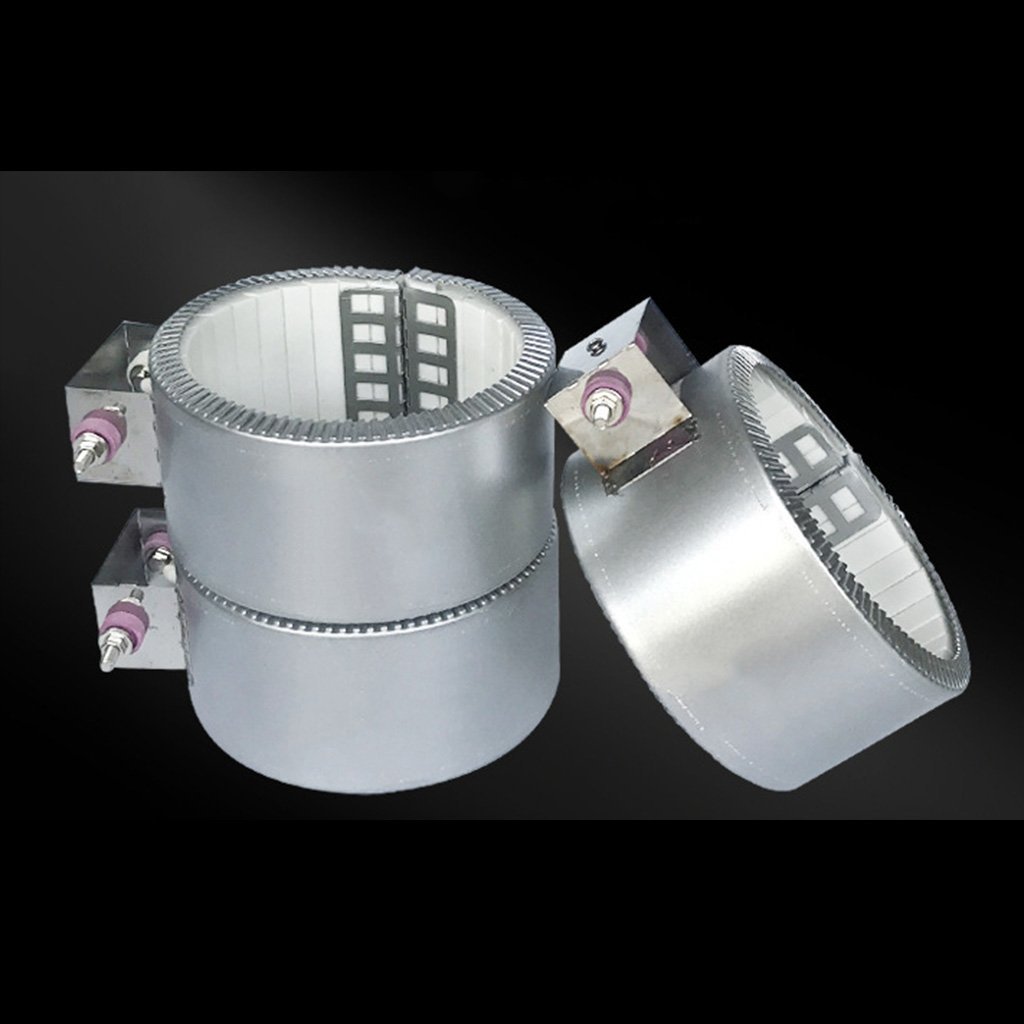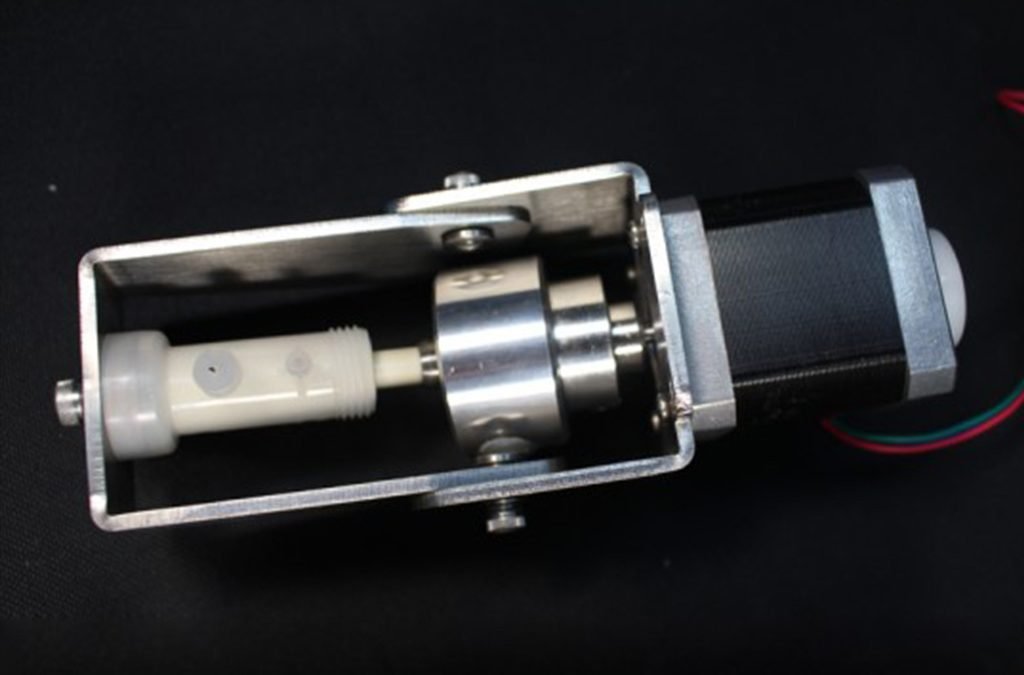Alumina industrial ceramics properties: sealing anti-wear, high temperature, high pressure, hardness, insulation, thermal conductivity, corrosion resistance, acid and alkali resistance, relatively low raw material prices, easy to refine and so on.
Below for the different properties of alumina industrial ceramics can be used in which practical applications to develop the narrative:
Sealing Anti-wear:
1, pumps and valves:
alumina seals can be used for pumps and valves in the sealing system. Its high hardness and low coefficient of friction so that it has excellent sealing performance, and can resist high pressure and high temperature conditions of wear.
2, the automotive industry:
aluminum oxide seals can be used in automotive engines and transmission system seals. Due to the harsh working environment of automobile engines and transmission systems, seals are required to have high temperature resistance, wear resistance and chemical corrosion resistance, alumina seals can meet these requirements.
3, chemical and petroleum industries:
alumina seals can be used in the chemical and petroleum industries, pipelines, tanks and equipment. The fluids in these industries are usually high-pressure, high-temperature and corrosive, alumina seals can provide reliable sealing performance and abrasion resistance to ensure the safe and reliable operation of the system.
4, high-temperature kilns:
alumina seals can be used in high-temperature kilns in the doors, ports and connections of the seal. High-temperature kilns in the environment requires seals to withstand high temperatures and thermal shock, and maintain good sealing performance, alumina seals have excellent high-temperature resistance and thermal stability.
5, electronics and semiconductor industry:
alumina seals can be used in electronic and semiconductor equipment sealing applications, such as vacuum systems, packaging equipment. Alumina seals can provide reliable sealing performance to prevent gas and liquid leakage, and at the same time has good electrical insulation properties.




High Temperature and High Pressure Resistance:
1, heat treatment and smelting industry:
alumina industrial ceramics can be used as linings and insulation materials for heat treatment furnaces, smelting furnaces and other high temperature industrial equipment. Due to its high melting point and excellent thermal stability, alumina can withstand high-temperature environments and maintain structural stability.
2, high-temperature heat transfer equipment:
alumina industrial ceramics can be used for high-temperature heat transfer equipment, such as heat exchangers, tube bundles and burner linings. In these devices, the high temperature resistance of alumina can ensure the efficiency of heat transfer, and resistance to high temperature and thermal shock caused by damage.
3, aerospace industry:
alumina industrial ceramics can be used in the aerospace field of high temperature and high pressure applications, such as jet engine combustion chamber and turbine blades. Alumina’s resistance to high temperatures and thermal shock enables it to maintain structural stability and reliability under extreme operating conditions.
4, high-pressure gas and liquid systems:
alumina industrial ceramics can be used for high-pressure gas and liquid system seals and valves. Its high pressure resistance can ensure the safe operation of the system, and prevent leakage and failure.
5, nuclear energy industry:
alumina industrial ceramics can be used in nuclear reactors in the structural materials and thermal insulation materials. In the nuclear energy industry, alumina can withstand high temperatures and radiation, and maintain structural stability and radiation protection properties.
Insulation Thermal Conductivity:
1, electronics and semiconductor industry:
due to the high insulating properties and electrical insulation properties of alumina, it is often used as an insulating material for electronic and semiconductor devices. For example, alumina can be used in integrated circuits in the insulating layer, capacitors and insulating substrates and other parts.
2, power industry:
alumina industrial ceramics can be used in the power industry in the insulating parts and high-voltage equipment. For example, alumina insulators can be used in high-voltage transmission lines and substations, and its thermal conductivity can help dissipate heat and improve the efficiency of the equipment.
3, thermoelectric industry:
alumina industrial ceramics can be used in thermoelectric power generation device insulation and thermal conductivity materials. In the thermoelectric device, alumina can provide good insulation properties, while effectively transferring heat through thermal conductivity, improve energy conversion efficiency.
4, environmental engineering:
alumina industrial ceramics can be used in the field of environmental engineering insulation and heat-resistant materials. For example, in high temperature and corrosive environments, alumina insulating materials can be used in flue gas desulfurization devices and chemical processing equipment and other parts.
5, high temperature kiln:
alumina industrial ceramics can be used in high temperature kilns in the heat insulation layer and insulation materials. Its insulating properties can prevent heat loss, and thermal conductivity can help quickly conduct heat and improve the efficiency of the kiln.




Corrosion Resistance Acid and Alkali Resistance:
1, chemical industry:
alumina industrial ceramics can be used in the chemical industry for corrosive media handling and storage equipment. Because of its acid and alkali resistance, alumina can be used to manufacture storage tanks, pipelines, reactors and other equipment working in acid and alkali environments.
2, battery manufacturing:
alumina industrial ceramics can be applied to corrosion-resistant components in battery manufacturing. In the battery, acidic or alkaline electrolyte may cause corrosion of the material, and the corrosion resistance of alumina makes it ideal for use in parts such as battery diaphragms, electrolytic tanks and electrodes.
3, medical equipment:
alumina industrial ceramics can be used for medical equipment in the corrosion-resistant materials. In the medical field, some liquid or chemical substances may have a corrosive effect on the equipment materials, and the corrosion resistance of alumina makes it suitable for the manufacture of surgical instruments, implants and reagent containers and other medical equipment.
4, environmental engineering:
alumina industrial ceramics can be used in environmental engineering corrosion-resistant materials. For example, in sewage treatment plants and exhaust gas treatment devices, alumina can be used to manufacture acid and alkali resistance and corrosion-resistant equipment and components to deal with corrosive media.
5, food processing industry:
alumina industrial ceramics can be used for corrosion-resistant equipment and containers in the food processing industry. Because of its resistance to acids and alkalis, alumina can be used to manufacture food processing equipment, storage containers and reactors.
With the rapid development of modern technology refining technology, alumina industrial ceramics raw material refining costs have fallen dramatically for the need to use alumina industrial ceramics industry is very advantageous, alumina ceramics also has a strong plasticity, according to the actual need to customize a variety of sizes and specifications of the shape of the parts/components.
FAQ
Can you provide samples for me to test? How much does it cost?
We strive to provide ceramic samples that closely meet your requirements to the best of our abilities.
The samples are completely free, but you need to pay the freight.
For samples with unique shapes that require custom molds, we are open to discussing the mold cost in order to accommodate your specific needs.
We don’t know which material of ceramic we need, what should we do?
No worries! Please provide us with more details about your requirements, such as the intended use, desired properties, and any specific characteristics you're looking for.
With these information, our team can guide you in selecting the most suitable ceramic material for your needs.
We are concerned about the quality of the product we ordered.
We understand your worries and we maintain stringent quality control standards as following:
| Test Standard | Testing Dimension | Pass Rate | Standard Range |
|---|---|---|---|
| Appearance Inspection | Quantity and Severity of Defects | ≥ 97.3% | Determined by AQL standard |
| Dimensional Inspection | Size Accuracy and Consistency | ≥ 98.1% | Determined by ISO 9001 standard |
| Density Testing | Material Density | ≥ 97% | Determined by ASTM C20 standard |
| Hardness Testing | Surface Hardness | ≥ 98.2% | Determined by ISO 6508 standard |
| Flexural Strength Testing | Material Flexural Strength | ≥ 97.9% | Determined by ASTM C1161 standard |
| Thermal Shock Stability Testing | Material Thermal Shock Stability | ≥ 98.7% | Determined by ASTM C884 standard |
*Qualification standards higher than ISO standards
In addition to production line inspections, we also accept inspections from third-party organizations several times a month
While the occurrence of defects is extremely rare, it is an unavoidable possibility. If any quality issues arise, we take full responsibility and will expedite the reproduction process at cost price.
Our commitment is to ensure that our products meet the highest quality standards and promptly address any concerns to ensure customer satisfaction.
What is the processing accuracy of ceramics?
| Precision Requirement | Example | Unit |
|---|---|---|
| Surface Flatness | Ra ≤ 0.1 μm | μm |
| Dimensional Accuracy | Tolerance within tens of μm | μm |
| Aperture Precision | Diameter tolerance within a few hundred μm | μm |
| Surface Finish | Ra ≤ 0.2 μm | μm |
We maintain strict processing precision standards, ensuring that our products meet the majority of requirements using our standard manufacturing processes.
However, if you have a need for even higher precision products, please feel free to contact us.
We can discuss your specific requirements and explore customized solutions to meet your exacting standards.
What's your trade terms?
We prefer EXW, FOB and CIF as for terms.
T/T, West Union,30% deposit, 70% balance paid before delivery are greatly appreciated.
How long does your production take?
Q: What is the typical production lead time for Vhandy Ceramics?
A: The typical production lead time for Vhandy Ceramics is 15 to 20 days.
Q: Are there any situations where the actual delivery time may be longer?
A: Yes, in certain cases, such as shipping to distant countries, the actual delivery time may be extended beyond the standard range.
Q: What factors can contribute to longer delivery times?
A: Factors such as customs clearance procedures, transportation logistics, and international shipping arrangements can contribute to longer delivery times.
Q: How does Vhandy Ceramics handle potential delays?
A: Vhandy Ceramics strives to minimize potential delays and works closely with shipping partners to expedite the process whenever possible.
Q: Can I get an accurate delivery estimate for my order?
A: Yes, our customer service team can provide you with an estimated delivery time based on your specific order and location. They will also keep you informed throughout the production and shipping process.
Contact
*Your contact won’t be shared with 3rd party.
Shenyang Vhandy Technology Co., Ltd.
Room 401, D11 Block (Shenyang International Software Park), Shenyang, Liaoning, China
Phone/WeChat/WhatsApp
Tel
0086-24-31501218

